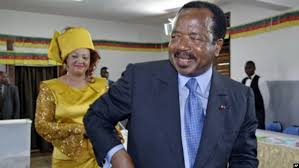
Prominent Cameroonian journalist Bouba Ngomena has strongly denied claims that he is involved in a collective supporting President Paul Biya’s re-election campaign, describing the allegations as false and damaging to his professional reputation.
The presenter of the widely watched Canal Presse programme on Canal 2 reacted firmly on 23 September after whistleblower Boris Bertolt published claims linking him to a group allegedly created by David Eboutou to back Biya’s candidacy and access campaign funds ahead of the 2025 presidential election.
In a statement, Ngomena rejected the accusations outright and insisted he had no connection with any such organisation.
He stressed his commitment to journalistic impartiality and neutrality, particularly in the run-up to a highly scrutinised election.
“I have no connection with this alleged collective,” he said, reaffirming his duty to remain objective and independent as a member of the press.
Bertolt’s allegations suggested that a media and logistics structure had been set up to support the incumbent president’s campaign, with Eboutou reportedly at the centre of the effort. However, Ngomena’s swift denial has cast doubt on the credibility of those claims and prompted questions about the reliability of Bertolt’s sources.
The controversy highlights the heightened sensitivity of Cameroon’s media environment during an election period, where political tensions run high and accusations can quickly gain traction on social media. Journalists and public figures face intense scrutiny, and any suggestion of political alignment risks undermining their credibility.
Ngomena’s immediate and unequivocal response underscores the importance of safeguarding journalistic independence amid increasing attempts to influence the media landscape ahead of the 2025 vote. His denial also serves as a reminder of the challenges faced by reporters navigating misinformation and political pressure during critical electoral moments in Cameroon’s democracy.



